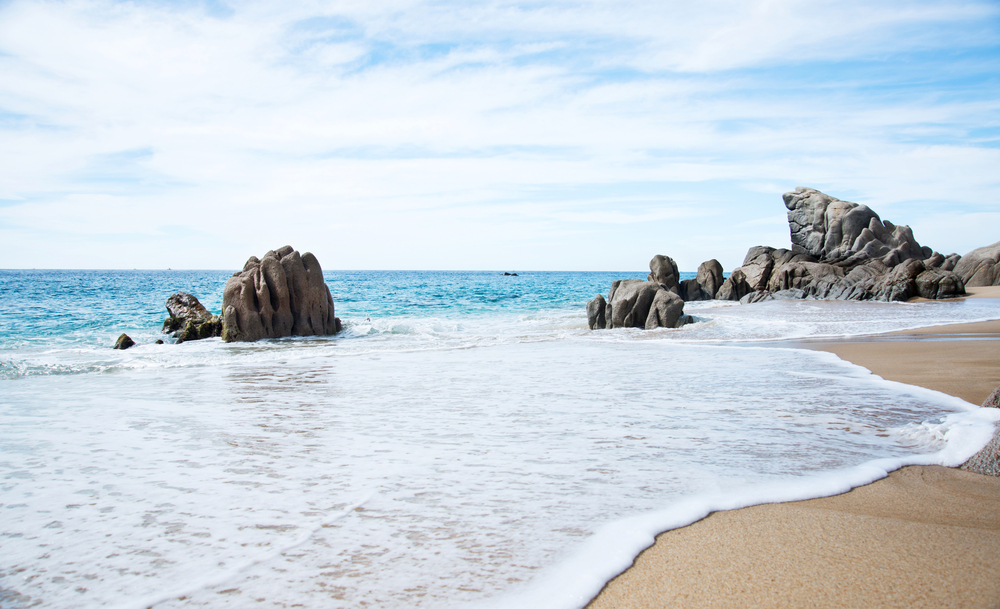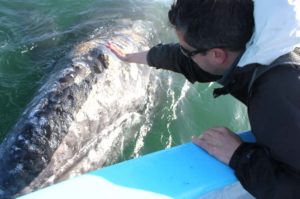

2017 by the Numbers: Environment
At ICF, we believe that environmental conservation is key to the prosperity of people and animals. Our planet provides safe water for drinking, clean air for breathing, and fresh produce for nourishment — but access to these precious resources is not always equitable, particularly as demand continues to rise in many regions of the world where we work.
Nowhere is this truer than throughout the Gulf of California/Sea of Cortez region of Baja California, Mexico. Once called the “world’s aquarium” by Jacques Cousteau, the Sea of Cortez has been under threat by large-scale tourism and populations growth who’s impacts include illegal fishing, pollution and sewage, commercial agricultural and native species removal. Here, everything from the marine and land habitats that foster the region’s rich biodiversity, to water quality that people depend upon has been affected.
With the support of our generous donors, ICF continues to raise awareness and critical funding need for conservation projects that ensure a healthier and more sustainable future for Mexico. We’re proud to report that with the funding that we and our grantee partners received in 2017, we achieved many successes towards our mission to protect the environment in the regions where we and our supporters live, work and play.
Supporting a More Sustainable Mexico
Local marine ecosystems in Baja and the communities they support are facing constant threats from unsustainable development proposals, increased mining and pollution — but there is hope.
Thanks to the generosity of our donors in the fiscal year 2017, ICF contributed a total of $4.8 million in grants to support organizations providing environmental protection across Mexico and Latin America. For more details about our impact, read our full annual report for FY2017.
Here are just some of the achievements that our donors helped us reach in 2017:
- Recycled over 4.5 tons of plastic through beach cleanups with local nonprofits
- Collected 492 samples of sea water, which were tested for harmful pollutants and E. Coli
- Carried out 5,158 hours of community work to monitor protected fishing areas
- Informed 42,461 citizens about the status and importance of clean and healthy local waters
- Assessed 58 reefs according to the Reef Health Index
One of the most successful coalitions leading this work is the Baja California Waterkeeper Fund. The Baja Waterkeeper program supports the ten “waterkeepers” throughout the peninsula who lead water quality monitoring and conduct community outreach campaigns to raise awareness about water quality for public health and safety reasons. The group also leads various informative workshops, community efforts, and cleanup strategies to engage local residents in the conservation effort.
As of 2017, ICF’s Baja Waterkeeper Fund has ensured that over 75 watersheds and coastal spaces are monitored regularly. Thanks to a recent campaign , ICF recently secured $500,000 of funding to sustain the Waterkeepers’ work for another three years.
We are grateful for every supporter and donation to the fund, as this funding is critical for the ongoing measurement, promotion, and public health of the Baja California peninsula!
You really can help Save the Whales…in Baja!
We will continue to raise funds for environmental conservation in Mexico — not just for the Baja California Waterkeepers, but also for initiatives such as the Laguna San Ignacio Whale Conservation.
As a member of the Laguna San Ignacio Whale Conservation Alliance since 2005, ICF has helped protect the majestic pacific gray whales that come to Baja in the winter to birth their babies. In addition to defending more than 340,000 acres of water and reducing industrial threats, we will keep working with the local community to provide grants and research into sustainable alternatives for economic growth.
We are also in the process of monitoring 90 sites from 9 regions across the Gulf of California to improve our overall understanding of the marine ecosystem. Accurate and up-to-date knowledge of this region is essential to our environmental conservation efforts, as it will allow us to make a greater impact on Mexico’s natural habitats.
Visit our website to learn more about our current environmental initiatives or to donate to any of our funds. With your support, we can ensure a more sustainable Mexico and Latin America, which means a safer environment for the people and animals who live in this beautiful part of the world.
Join Our Mailing List
Stay Connected with ICF
Be the first to get exclusive updates on
what ICF is doing to make a difference!
